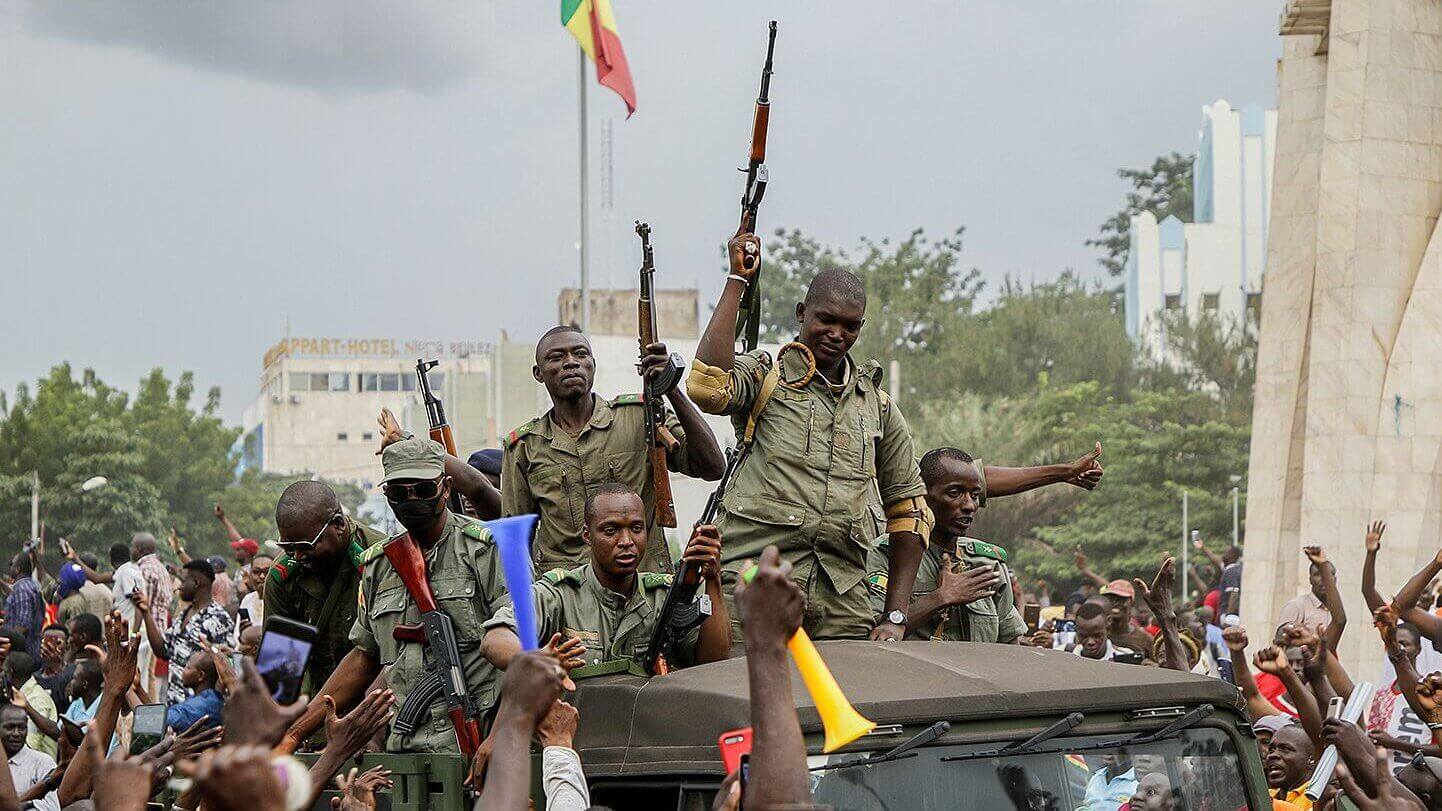Mali’s President and Prime Minister, Ibrahim Boubacar Keïta and Boubou Cissé, were arrested by soldiers in Bamako late on Tuesday in a military coup. Keïta and Cissé were taking refuge the Presidential palace and were then taken to a military base in Kati, 15 kilometers away from the capital.
The mutiny, it appears, has been supported by the public, with hundreds gathering in Independence Square in the capital to applaud the military’s actions. The Minister of Defence, Ibrahima Dahirou Dembélé, and other high-ranking government officials were also taken to the Kati camp.
Both the Economic Community of West African States (ECOWAS) and French President Emmanuel Macron remarked that they are monitoring the situation closely, with the ECOWAS releasing a statement reading: “This mutiny comes at a time when, for several months now, Ecowas has been taking initiatives and conducting mediation efforts with all the Malian parties.” In fact, Macron earlier met with the leaders of countries in the region, such as Côte d’Ivoire’s Alassane Ouattara, Senegal’s Macky Sall, and Nigeria’s Mahamadou Issoufou. French Foreign Minister Jean-Yves Le Drian said that France “condemns in the strongest terms this grave event”.
The European Union has condemned the “unconstitutional coup ‘d’état”; this sentiment has been echoed by the United States (US) and the United Nations (UN) as well. Similarly, the African Union’s (AU) chairman, Moussa Faki Mahamat, “strongly condemn[ed]” the “forced detention” of the President and the Prime Minister and called for their “immediate release”. He called on the mutineers to “avoid violence and respect the country’s constitution and its institutions”.
Reports of a mutiny within the camp emerged earlier in the day, when soldiers drove into the camp and exchanged fire with the soldiers who were already present there. The leader of the coup is believed to be Colonel Sadio Camara.
Violence has been escalating in Mali for weeks now, with protestors demanding the resignation of President Keïta. In response, the government has urged “reason and patriotism” and an end to violence after several government offices were attacked and set on fire.
Following his detention, Keïta announced his resignation and the dissolution of parliament in a televised address, saying, “I want no blood to be spilled to keep me in power.” In fact, a violent military coup in 2012 ousted then-president Amadou Toumani Toure, which paved the way for Keïta to take the reins in 2013.
In late July, the ECOWAS threatened sanctions against the Malian opposition for rejecting mediation and a unity government. The opposition stated their distrust in ECOWAS to handle the current crisis and their rejection of Keïta’s concessions, while also declaring that they will settle for nothing less than the President’s resignation.
The protestors’ dissatisfaction with the incumbent government erupted following Keïta’s decision to pressure the constitutional court into overturning the results of parliamentary elections in April. That being said, anger at his rule dates back further than April. The President is also accused of failing to tackle jihadist elements in the north that are now spreading to the center, and of failing to control the ongoing economic crisis. This unrest has led to the creation of the June 5 Movement (5M), led by the powerful imam, Mahmoud Dicko.
In early July, Keïta attempted to calm tensions by dissolving the court. At the same time, he decided to begin implementing some of the recommendations put forth by the ECOWAS, which entail re-running the contested legislative elections from March. The ECOWAS mediation team, led by former Nigerian President Goodluck Jonathan, also convinced Keïta to form a transitional, power-sharing government, under which the ruling government would hold 50% of the seats, and opposition parties and civil society groups would respectively be left with 30% and 20%. Keïta also indicated that he would be willing to dissolve the national assembly, and last week, he named nine new judges in the constitutional court.
None of these concessions were deemed satisfactory for the opposition, as the opposition did not trust Keïta to give them “meaningful influence” in a power-sharing, unity government. However, the ECOWAS stood firm in saying that pushing for Keïta’s resignation is a “red line” that they are not willing to cross as they consider his 2018 election victory to be “democratic and entirely legitimate”, a point which seems to have been indirectly reiterated by the AU, the EU, the UN, the US, and France.
These events precipitated yesterday’s mutiny. It remains to be seen who will now take control of the country, but after the previous 2012 coup, the country descended into chaos, with jihadist groups spreading instability across the nation.
Military Coup Forces Mali President to Resign, Condemned by ECOWAS, AU, UN, EU, France, US
President Keïta and Prime Minister Cissé were arrested by the military late on Tuesday.
August 19, 2020

SOURCE: MOUSSA KALAPO/EPA/SHUTTERSTOCK
